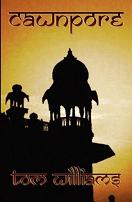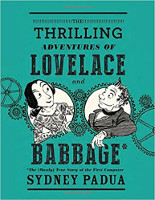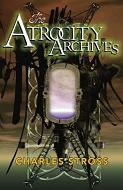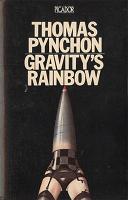 Tom Williams is an English writer, living in London. Cawnpore is his 2nd Novel, following the 2010 release of The White Rajah (review here). It follows again the fictitious John Williamson, this time, as the title suggests, against a setting in East India Company controlled India. Cawnpore is, again, presented as an account written – but not published, due to its content – by John Williamson. I'm not sure if this conceit had to be extended to the Author's preface, but let's indulge him here...
Tom Williams is an English writer, living in London. Cawnpore is his 2nd Novel, following the 2010 release of The White Rajah (review here). It follows again the fictitious John Williamson, this time, as the title suggests, against a setting in East India Company controlled India. Cawnpore is, again, presented as an account written – but not published, due to its content – by John Williamson. I'm not sure if this conceit had to be extended to the Author's preface, but let's indulge him here...
What I object to then, (to join in the make-believe) is that, besides apparently keeping Williamson's old-fashioned spelling of names (great) and standardising all spelling (ok) he removed the Victorianstyle, long narrative chapter headings (shame, I love those) of the purported original manuscript!
The story picks up where The White Rajah left off, i.e. in Singapore, from where Williamson travels to India, and takes up a job with the East India Company (of which John Brooke didn't have a particularly high opinion) as a Deputy Collector in Cawnpore. The rest is history, as they say (literally, in this case); witnessed and brought to life, from within and as an external observer, by Williamson.
In contrast to The White Rajah Williams does not waste time to get to the homosexual sub-topic (yes, Williamson is gay, at a time when this was rather more difficult than today); the 1st “sex scene” is in Chapter 2. This scene, as well as the entire homosexual relationship is very well handled indeed felt; it neither is pushed to the fore nor hidden behind the momentous events.
What I felt was missing though was some more information on what it actually meant to be homosexual in terms of societal status and practicalities at that time in history – but there is only very little exposition or explanation on this when it comes to British society, and even less in terms of the contemporary Indian one. I think this could well have provided the author with an additional thread, a further level of complexity within the story.
Maybe this is partly due to the change in focus from The White Rajah (which tells Williamson's story against the background of historical events) to Cawnpore (which re-tells a historical event witnessed by him)?
There are a number of ruminations on/exposés of the social structures in EEC-controlled India, on expectations in regards to having servants, and the different types of (man)servants, which are all given their (presumably correct) Indian names. I'm not one who can tell his Khanasaman from his Khitmuntghar, even after reading this story..., so this added local colour, but no real information for me.
There are some interesting observations when it comes to British rule in India, including the telling comment regarding the British and their attitude to being somewhere with a different culture and climate: “I wondered what these people were doing here in India, when they so clearly wanted to pretend to be in Surrey and ride to hounds after the fox.” Food, dress, topics of discussion, all remain thoroughly rooted in the distant home country. Plus ca change...
Or, on occasion of the annexation of the Kingdom of Oudh - “my own experience of the military mind in Borneo had left me unwilling to become closer acquainted with it”. Quite.
The author still has his habit of heavy foreshadowing – this is maybe more excusable when it comes to the events at Cawnpore which are a matter of historical record; and which, apparently, every British school child could have recounted. Me, I had to read up on the topic first, but I blame my upbringing abroad, owing to which I sadly missed the English education system...
There are two main quibbles I have with the story, and both are close to the core of the yarn Williams spins here. The first is that, despite spending copious amounts of days (and nights...) with his lover Mungo at the court of Nana Sahib (the very same who rose up against the British) and being waited upon etc no-one knows of him being there and their illicit relationship; which is, frankly speaking, unrealistic – if nothing else then servant gossip would have put an end to this anonymity very quickly, both in the palace and in town.
The other conceit which struck me as unrealistic is the concept of Williamson, under Mungo's tutelage, becoming fluent in the language (Hindustanee, he calls it) and local cultural setting and customs sufficiently that, within less than a year, when wearing the correct clothing he can pass as a native – and does so, in the guise of a Cavalry Officer, for most of the story.
For all this questionable basic premise – this approach allows the author to add a lot of depth and (sometimes hypothetical) rationalisation and insights into the how and the why of what transpired over those infamous 3 weeks.
Overall the story is well paced, with only a few slower parts, and with interesting characters the reader can identify and engage with. The author does an excellent job of building the tension towards the, apparently, inevitable escalation and violence. The way the story is told the whole setting takes on something of a Greek tragedy, with the outcome known in advance. The setting and the way it is threaded into the story is very vivid and captivating – to the point of it staying with you when you put the book down.
The book can be enjoyed on its own, without reading The White Rajah first (I would recommend that you do so, though, as it's also a very enjoyable book); overall this is a very well executed, fascinating and captivating treatment on a neither very edifying nor glorious event in British history - highly recommended reading for anyone with an interest in British History in India, the East India Company, or general Historical Fiction. Or Gay Fiction, if the sexuality of the characters is your main reason to pick up a book...
Title: Cawnpore
Author: Tom Williams
Reviewer: Markus
Reviewer URL: http://thierstein.net
Publisher: JMS
Publisher URL: http://www.jms-books.com
Publication Date: 2011
Review Date: 120429
ISBN: 9781611522709
Price: UKP 9.8
Pages: 280
Format: Trade Paperback
Topic: Historical Fiction
Topic: British Empire
Thanks to the author for the review copy.













